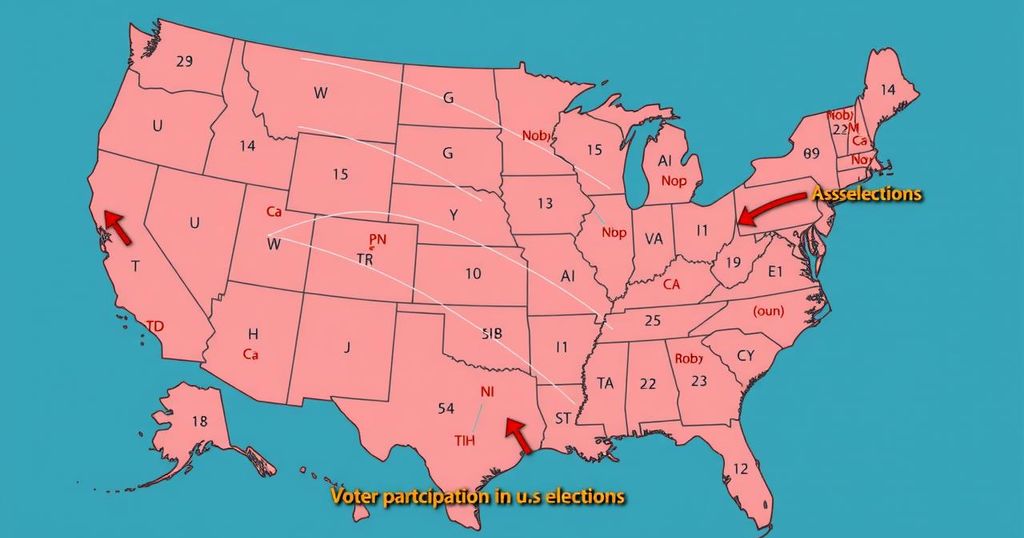Americans’ Reluctance to Embrace Electoral Reforms Amidst Partisanship

This article reflects on the recent U.S. elections, noting voters’ disinterest in electoral reforms aimed at fostering moderation and reducing partisanship. Various initiatives, including ranked-choice voting and anti-gerrymandering efforts, were largely defeated, revealing a significant resistance to such changes amid a polarized political environment. For reform advocates to succeed, clear communication of the benefits and reassurances regarding political neutrality are essential.
The recent general elections in the United States have raised questions about the electoral process and the evident disconnect between voters’ desires and the election outcomes. Many Americans express a preference for moderate candidates and an aversion to partisanship; however, the political landscape remains highly polarized. Despite a selection of ballot initiatives aimed at reforming the electoral system to encourage broader appeal among candidates, most of these measures were rejected by voters. Notably, states like Colorado, Idaho, and Nevada opted against changes, while initiatives that could have led to open primaries or anti-gerrymandering measures largely failed. Only Alaska maintained its rank-choice voting amidst significant opposition from the major parties, indicating a substantial resistance to reforming election mechanics. Current political dynamics suggest that attempts to modify electoral rules will continue to face skepticism and opposition unless reforms are effectively communicated, extending clarity on their advantages. It is imperative that reform advocates reassure constituents that they are not favoring any political party through proposed changes, as the electorate grows weary of extreme partisanship and craves more moderate representation in politics.
The article discusses the American electoral system following the recent general elections, wherein various proposals aimed at reforming electoral processes were largely rejected by voters. It examines the wider implications of this trend, highlighting the disconnect between voters’ preferences for moderate candidates and the prevalence of partisan extremism. The potential benefits of alternative voting systems and primaries are presented, alongside a critique of the political climate that enables rejection of these reforms.
In conclusion, while voters express dissatisfaction with partisanship and a desire for moderate candidates, reform efforts aimed at ameliorating these issues continue to struggle against an entrenched political climate. The failure to pass election reform initiatives in several states illustrates the complexity and resistance to changing the status quo. For meaningful reforms to gain traction, advocates must communicate the advantages clearly to alleviate voter concerns and emphasize the necessity of creating a more representative electoral system.
Original Source: www.courierpress.com







